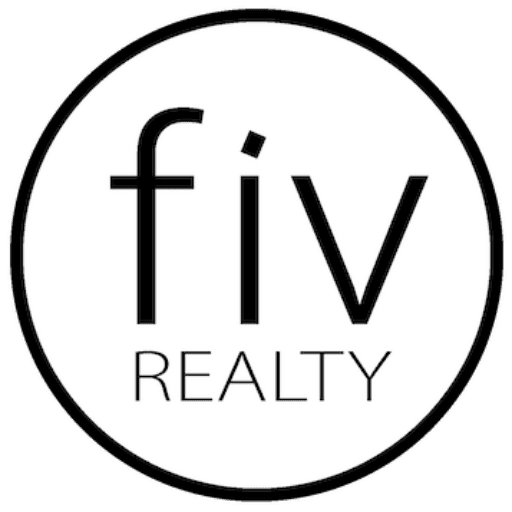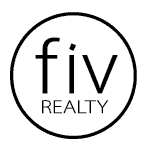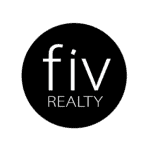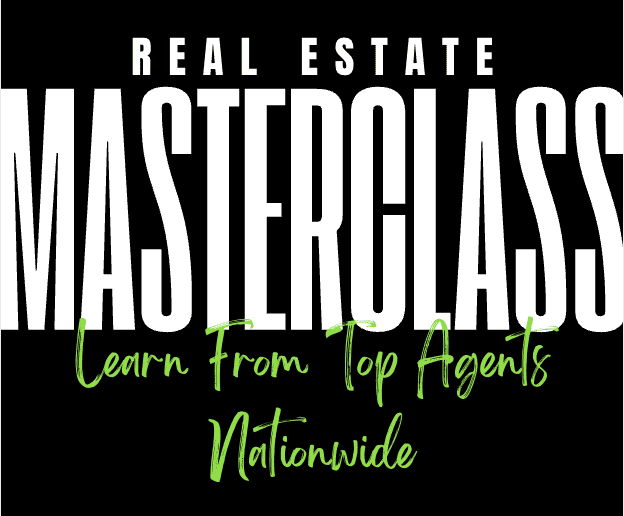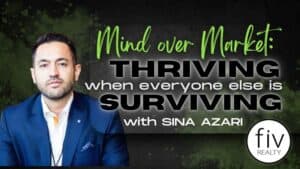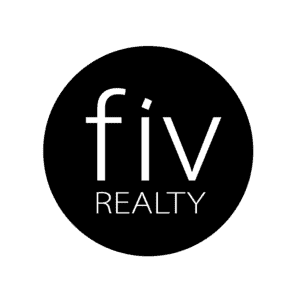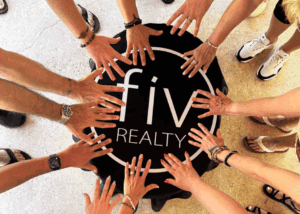Tom Ferry Summit Recap
===
Nazar Kalayji: [00:00:00] Today’s talk or call or discussion that we’re gonna have today is basically for those that went to the Tom Ferry Summit and hopefully had a great experience there last week. Just kind of recapping because what ends up happening a lot of times is that we all go to the summit and we get this big old fat book, and then it’s like drinking from a fire hose for, you know, three days straight.
And sometimes people drink too much and don’t remember anything they’ve learned. I. And, and then they come back home and they have all these great ideas, and then nothing gets implemented because they just get fried. And then what also happens is that when you get back home, and if you’re like me, when you go on either a vacation or go on a conference that’s when you’re.
Phone blows up and you get busier than you’ve ever had before, right? Who’s, who’s had that experience before. And so going back home, you get kind of wrapped up into day-to-day life, and then you just kind of forget about what you learned and, and then really not implement anything. So hopefully today we’ll be discussing things that you’ve learned at the summit [00:01:00] and, and then hopefully like think about, hey, yeah, this is something I need to do and, and I love how Matt Farham.
Had said, not only is it that we’re gonna be discussing what one thing you are going to implement, but is, or what is the first actionable item that you are going to do or step you’re gonna take to be able to actually do that thing. Okay, so I’m gonna start calling people out here. And if you could ideally turn your cameras on, which would be phenomenal.
So we can get the process started and I’ll just kind of call on some of you guys and, and say, Hey, what, what is your number one takeaway from the Tom Ferry Summit? Right? I know you might, might have a whole bunch of ’em, you might have taken a ton of notes, but I wanna know your first and most important thing you plan on implementing, and then what is the very first step that you are going to put or have done or, or going to do to be able to implement that one thing?
Okay. So Jessica Forrester. If you could, if you wouldn’t mind muting yourself or unmuting yourself and, and tell us what’s that one thing and then what, what have you already done or what are you going to do to be able to make that happen?
Jessica Forrester: Hello. Yes. Thank you. So our biggest takeaway from the Tom Ferry Summit, what we’re implementing first is the listing [00:02:00] attraction, the a hundred k to a hundred days we’re starting tomorrow.
So that, that’s what we’re doing. So like what exactly are you doing to be able to make that happen? What’s the first step? Okay, so Jimmy Mackin went fire, fire, fire, fire, fire with everything that he said and he was absolutely amazing. But I came home and this weekend and I watched it again and I paused it.
I created a spreadsheet that links the different strategies to the action items, the slide, or explaining how to do it. And I did the same thing with Tom’s packet for a hundred k and a hundred days in the, in the, in the, broke it up, broke up the playbook and the tracker. So our team is starting tomorrow.
We’re gonna look at the first one through 32 days, I think, or 33 days and start there. And I, I think it’s lazy man. C m a is the first step. Awesome. Yeah. And you, you’re having a whole team do this, like walk it through the [00:03:00] same, everyone’s doing the same thing. Yep. Okay. Absolutely. Yep. Okay. Awesome. Matt Farham, how about you?
For us, I think the overwhelming takeaway for probably everybody was ai and just the urgency with that. And I’ll tell you, you know, kind of a light bulb for me was. I’ve never been a early adopter, so like social media, Instagram, even putting video content out, like I’m definitely more of a late adopter.
Like I was one of the last people to get the iPhone. I’m like, lemme see if this is gonna stick around for a while. But AI is, is not something we can sleep on. I, I absolutely see that, that I can’t be a late adopter on this, that we need to lead the charge. So, The first action for us is we got in a huddle, and now me and my client care team are committed to a certain, like a few AI platforms to level up our, our email game, our blog that we wanna start with the help of ai, the way that we can be more efficient with getting some videos edited and, and updates and things like that.
Then we also have the agents on the team excited about AI as well. [00:04:00] So they’re also gonna be tackling different AI programs, learning them once they got them kind of figured out, bringing ’em to the team to teach ’em to us. So we’re kind of divide and conquer AI as a team. Okay. I mean, it still seems like, I don’t know if you guys remember that diagram we showed, like all the different AI platforms and everything that they’re doing, it just seems so overwhelming.
So I think just taking it one step at a time is gonna be the, the, you know, that’s, that’s the only way you could do it. ’cause it’s just seemed overwhelming otherwise. And, and really the first, first step was, okay, let’s identify what do we really need help with? Not just like change chasing the next shiny cool AI tool ’cause there’s so many of ’em, but what really, what’s a piece of our business that needs to be improved or more efficient or simplified?
And how can we find an AI tool to do that? Absolutely. That’s a great way, way of looking at it. Brent, can you unmute yourself and tell us what were you at the Tom Ferry Summit?
Brent: No, I was not at the summit, so I, I’m here to just listen to what everyone else has to say. Sounds good.
Matt Farnham: Brent’s gonna be working with Team Farham in your future, so I said [00:05:00] hop into the masterclass.
Okay, cool. All right, Amber, were you there? Is Amber I.
Amber Johnson: I wasn’t there, but I watched it at the office. I think the biggest thing for me was the mindset shift and then to attack the hardest problems first instead of starting easy. Hmm. Because I do that a lot. Like I start with like the small things I know I can do, so I wanna switch and just go for it.
Absolutely. It’s, it’s that whole analogy of like, Getting a jar and putting the rocks in before you put the pebbles in and before you put the sand in, right? Yeah. Like the sand tackles is easy, but at the same time, you don’t get the actual hard stuff that you need to get done done. So it’s great takeaway.
Okay. Let’s see. Mike Babakanyan, you’re unmuted, dude. Or you gotta unmute.
Mike Babakanyan: All right. Good morning. Good morning. So my biggest takeaway was definitely the seller seminar. I’m going to be incorporating it. I was, I just finished the group call they had on the seller seminar. I took a lot of good notes [00:06:00] and I’m gonna do it at least once a month in the beginning, starting January.
And here are some key takeaways I got from the call as well. I, I’m happy to share with the group is definitely include the seller seminars and every branded material that you mail out. Social media ads, any open house flyers database mailers. One of the key things one of the agents does is if they have a listing in the farm, I thought this was very interesting.
They host a seller seminar at the property and they invite the neighbors to come and attend the seller seminar. For that listing. A, you’re giving exposure to that listing. You’re asking if, who do they know that might be interested in buying the property, but more importantly, you’re meeting the neighbors and you’re giving them value if they’re thinking about selling in the near future.
So I thought that was a, a genius idea. So definitely I’m tackling the seller seminar. Okay. I, I think one thing with that is that if you can do that person’s house, you, you wanna just let ’em know that’s what you’re doing. Well, Well, there’s no, there’s no common sense in this world anymore. I think acknowledging the obvious [00:07:00] sometimes might be worthwhile.
That’s funny. Of course. Yep. All right. Very good. All right, so who else was either there in person or, you know, saw it virtually that has like a really good takeaway that you feel like this would be an amazing thing to be able to implement?
Karen Stone?
Karen Stone: Hi there. Sorry, I’m just tuning in. I, I don’t know. I didn’t see you there, but I, there were, you know, 6,000 people or 7,000 people. I think I really loved Mackin. I forgot what his first name was. With the cmass, I am literally, I. Jimmy, I can’t even tell you how deep in the CMAs I am. For those of you in Utah or a non-disclosure state, we just got our tax bills or like our assessments and the, and the estimates and mo like almost the entire community is complaining about the values.
And because we’re a non non-disclosure state, I have literally offered to run [00:08:00] comps on the Nextdoor app and I’ve run over 215 reports. For strangers and I felt like I literally made like a Google form. I’m using my just just the m l s but that really helped me to kind of come up with the next strategy for that because just doing the C M A is just like the first step.
Now I have their information and it’s like all these people raise their hand. They all know who I am. I provided them value, and it’s like, now what? So I appreciated that and. Just the, the guy who discussed marketing I’m blanking on his name too. Sorry. I’ve like been running all these comps and where he was talking about like the brand and, and, and just bright instead of marketing, I have a marketing background and.
I really appreciated what he said, like, so much so that I was like, I wanna go back to school and like, learn more about this because it’s true, right? Like we focus so much on the brokerage and what [00:09:00] the brokerage brand is, but ultimately it’s like who we are and, and what we say. And like, I literally find myself like catching myself when I, when I talk about a listing, I change it to a home for sale, right?
Like simple, easy, key word. It’s not that hard
Nazar Kalayji: to change. I think calling or using the jargon that we use is so difficult because it, to us, it’s just second nature. But for customers that we have like, they’re like, I don’t even know what you’re talking about. When I talk to lenders, it’s like that all the time.
To me where they use these words, I’m like, dude, can you please? Yeah. Plain English. For sure. Don’t understand. Awesome. Thanks for your feedback, Karen. Josh? Yeah. I was gonna touch on what Karen said. So it’s Mark Davison with the thousand Watt. Yeah, he was really great that people don’t buy listings.
They buy, they buy homes, you know, and I, I talked with him in the back of the room for a while and he was, yeah, super great. And a thousand watts pretty cheap. I mean, it’s like 250 bucks for the year and they [00:10:00] send you all sorts of. All sorts of stuff, you know, like that. Or they can totally redevelop your brand if you want for thousands of dollars, but it’s like more like 75,000.
Yeah. Right. Thousands and thousands and thousands of dollars. But yeah, no, he was, he was really good. And I mean, then also my other takeaways, obviously like the ai stuff like, you know, trying to jump into that. I know you guys sent around your, like the chat G P t guide. And then also it’s, you know, a little bit older, but like video, like I feel like if you’re not doing, if you’re not thinking about doing video at this point, like you, you know, and I’m not doing it and like I really gotta get into it.
Like, if you’re not doing it or thinking about doing it, you’re so behind. And you really gotta jump into it. So that was my big takeaway, that, you know, I need to do video. Like if I wanna continue in the business, I need to do video. Mm-hmm. Gary Varek, if you guys follow him You know, he just recently posted a reel that said [00:11:00] if you think that you’ve already missed the boat on video, like you haven’t just freaking get into it.
Like, don’t let excuses stop you from doing what you need to do to make a connection with other people. And you know, sometimes like I’ll make a video and I’ll post and I’m like, oh, I only got 150 views. Like if I had a room where I had 150 people there to listen to what I had to say, I’d be like nervous and scared and be like, oh my gosh, this is amazing.
Right, but if you don’t get thousands of views, you get all pissed off on social media. Like you don’t have to have a video go viral. In fact, most of the videos that go viral do nothing for you because for that to happen, that means that people around the, you know, either country or or wherever watching it, that are not gonna be transacting with you.
So don’t focus on the number. Focus on just getting good content out there and being consistent with it. So, I love that. Josh, thanks for your input. Amber, is it, I can’t say her last name. I don’t know. Say your last name. It’s Biten. I didn’t attend. So I’m here to learn from everyone. Gotcha. Cool. I thought you [00:12:00] had raised your hand for a second and said something.
Okay. So who, who else was actually physically there and has a, a perspective that they’d like to share?
Kristina Kendig: I was there, nazar and I have a perspective. One thing, well two things really stood out to me. One, the importance of doing that buyer consultation, especially us on. The West coast that
haven’t been dealing with the lawsuit and stuff so much.
So making sure that you’re doing that buyer consultation and providing that value. And to tie that in where Tom was saying, not past clients, but clients that we treat, everybody I. As a client, as if we’re already working with them or continuing to work with them. And we had talked earlier today in another meeting about, you know I can’t remember who mentioned it, but targeting a certain demographic and it was the older people and having like, You know, the magnet or whatever it is like so that people know that they’re your client and that they’re gonna reach out to you.
But really dialing in, and I know our team is working on that this week [00:13:00] of having that consultation, asking more questions, listening and really treating your business as more than just door openers. Okay, awesome. I’d like to share a couple of my takeaways that I thought, you know, stood out to me is that I really feel that the, the problems that we all have as real estate agents could be solved by doing one simple thing, and that is talking to more people every single day.
Nazar Kalayji: Like, ’cause if you just imagine if you just spoke with 10 new people that you’ve never talked to before and found out if they’re interested in buying, selling, and investing in real estate. All the other things are just kind of would line into place. I don’t think that, you know, we are a transactional business, but we’re also in the business of like, you know, in the relationship business, right.
And if we’re not having more relationships, we’re not asking or getting more people that are in the, I don’t know, bucket into the I know bucket, then that’s when we fail. So that’s my takeaway is I left there thinking, yes, I [00:14:00] can do all the ai, I can do all these other things and they’re all great, but if I just focus my energy on talking to 10 new people every single day, then I will be able to be successful and, and whatever I’m trying to do, and if that’s recruiting, awesome.
If that is talking to buyers or sellers or whatever it is, just talking to fresh, tender people. And I remember, I dunno if he’s in this room or not, but. I remember, you know, challenging people to do that and you’d be surprised with how hard it is to talk to 10 new people for like, you know, five days a week for, for 30 days.
It’s, it’s actually pretty difficult. Mike, you had a comment I would add to that, not just 10 new people. Just talk to 10 people in your database or five people from your database. Your client, not your past clients, your clients. Just call ’em, check in with them. You’ll be surprised. They’ll be happy to hear from you.
Yeah. Who hates calling past clients or your sphere like, just doesn’t like doing it? Can you be honest? And really, Matt, you raise your hand, you don’t like talking to your past clients? [00:15:00] I mean, I, I like it, but I don’t like love it. You know, it’s like I could think of a lot of things I’d rather do than, than sometimes have those conversations, but, That actually surprises me a lot.
You know, knowing from, you know, how much of your, your transactions is based on that. Yeah. Well hopefully that encourages everybody. It’s just work, right? Real estate’s a real estate’s a contact sport. It is. And, and I really, really don’t like talking to my past clients. Not because I don’t, you know, I just, I’m not that agent that has like these, where every single past client of mine becomes like my best friend.
You know, like, I’m like, you don’t hang out with your lawyer, you know, like freaking you. You hire them when you need them. You, they do the job. You say thank you, and then you move on. Like, I, I don’t, I don’t know, but I, I guess our industry’s a little bit different and we it to be a little bit more warm and fuzzy and I’m just not,
Matt Farnham: Hey Nazar, I have a public challenge for you in front of everybody and that is Tom said if anybody says the word past, it’s a hundred dollars.
So those of us that are, are actually with five, I think we have a hundred dollars [00:16:00] like jar that we have to throw into. But here’s the thing though, like, how do you differentiate between a current client versus one that is no longer actively looking to buy or sell real estate? What’s the difference?
Nazar Kalayji: Still a client. Lifetime value of a client. Yeah. They’re still a client. I understand that. But if you’re talking to somebody and you’re like, oh yeah, like my client, they, they might think that you’re referring to someone that’s, you know, transacting at that moment. So, Nazar, this is John, my client, who I helped by house three years ago.
I’m not gonna say this. My repeat client, v i p client. Yeah. All right. Whatever. I’ll, I’ll, I’ll try not to say past. Alright. Who was takeaway that I had from the, yeah, go ahead.
Peter Abdelmesseh: It’s Peter. I thought so the biggest takeaways that I got from Summit and my coaches while recapping it, he said, don’t hold at or don’t half-ass the 20,000 things that you heard about at the summit.
We’ll ask at least just one thing, one to three things max, and then two. It kind of came up in the previous [00:17:00] elite retreat, I think, which is just f your feelings. Forget about how you feel, forget that your clients are gonna think that it’s awkward for you to reach out to them and just do it because it’s a job.
Just like how anybody goes to work, they have to do stuff regardless how they feel, what’s going on. Just do it.
Nazar Kalayji: Yeah. And, and that’s hard, right? Because emotions is what fuels any type of an action that take place. And so if you are. Feeling like crap or you know, a lot of other stuff is happening. It, it’s harder for us to be able to focus, or especially if you are, you wake up and you’re like, okay, today’s gimme a great day.
And then you get a phone call from a seller or a buyer. An escrow, you know, cancels or falls apart, or a home inspection comes in. There’s so many things that can go wrong and one of those things happen then you feel like you’ve got a pit in your stomach and it just sucks. And all you wanna do is like run away or, you know, get a whole bunch of ice cream and just eat your feelings, right?
Like, It’s hard to do that. It’s hard to be able to push those things aside and actually just get the job done either way. So [00:18:00] it takes a lot of discipline to be able to do that, so, yeah.
Peter Abdelmesseh: Well, the example that was given to me was, imagine that you’re in the middle of a lawsuit or divorce or whatever, and your attorney is just like, Hey, I’m having a bad day.
I’m not gonna release up for court today, or I don’t feel like going to court or something like that. How would you feel? Right? Yeah, absolutely.
Matt Farnham: Yeah. To pinging off of that too, what Peter said is, and Josh, to encourage you, like Ben Lales, he did the the talk or the case study on his videos, but I remember he said, it’s a business decision.
It’s not emotional, but I think some of you make the video portion emotional, but it’s just like talking to your clients or making a video. Like we either make a business decision or we don’t. We either want to do this for the next 10 years or we don’t. I think that’s what it comes down to.
Nazar Kalayji: Yeah, and to piggyback off of that, when I make my videos, I don’t ever listen to ’em.
I guess as soon as I post it on social media, I don’t ever watch it listen to myself. Like I just, I don’t like how I sound and look on camera, so I just post it. ’cause I just know I need to, and then I move on.
Mike Babakanyan: So [00:19:00] let me add to that regarding Ben’s presentation, one thing that stood out for me was I wrote the notes.
He goes, who is your target audience? Is it renters, first time buyers, first time sellers, investors, whoever your target audience is? Every video that you do, you should ask yourself three questions. Does this further my brand identity? Number two, am I speaking to my target audience? And number three, am I providing value?
If it’s not one of those three, don’t post it. He said,
Kristina Kendig: Well, and to add to that, Mike, I loved that he said, look for your Ruth, because he shared that example mm-hmm. Of somebody’s, was it their grandma that he ended up and then doing multiple transactions with that? You know, the grandma wasn’t somebody that was, it was the grandma, that former classmate or something that it reached out to.
So I know that that’s always an excuse that we use. Well, so-and-so’s already doing this video, or so-and-so’s already doing that video. It doesn’t matter. Look for your Ruth. Like you’re gonna have that person that’s gonna be reached because of a video that reached out to your [00:20:00] sphere or your people that are following you.
Mike Babakanyan: He said that too. He goes, your content isn’t to find strangers. You are shooting for your friends, family and past clients. You’re shooting for referrals from them. Yeah, yeah, yeah.
Peter Abdelmesseh: And I talked to, to that one thing that they brought up was about your brand. Make sure that you are clear on that because then you need to build your brand around what your main goal and focus and clarity are.
Josh Rosenberg: Yeah. And I talked to a bunch of Like video forward agents at Summit and we’re just talking about, oh, like what do you do? What? And yeah, they were just like, go look at my Instagram page and just rip off whatever I’m doing. Like, your people don’t follow me. They’re in a totally different market. It, it doesn’t matter.
Just literally copy me. You know? No one caress, right? Like,
Karen Stone: So I have, I have some, I have some words about that. I just took Karen Carr’s class. I don’t know if any of you follow her. K A R I N C A R R. It was like a hundred dollars for a week. I mean, it was [00:21:00] a lot of content. And when it came to video, she was talking really about YouTube.
But like, what is your niche, right? Like ripping off what other people do is not necessarily your niche. Like I’m in a luxury second home market. If I ripped off what Glenda was doing, no way would I attract the people that I wanna attract here. Also, I was at Inman a few weeks ago, and somebody spoke about, and Tom has challenged us with this too, like, what does a million dollar producer look like?
Like what are their habits? And so what does a, like, they challenge us. What does a 25,000 follower you know, Instagram account look like? What does a somebody who’s not just getting the follows, but who’s getting the actual business from it, like I’m making. You know, millions of dollars, or I’m getting, depending on the market, right?
Like I’m getting five deals a year from my videos. What does that look like? How many videos do I have to make? So like [00:22:00] look at video in the same way that you look at all of your other habits. That’s what I took away from a conference that I don’t think many of you were at.
Nazar Kalayji: So there was probably about a year ago, I was talking to my team about doing open houses and we’re discussing how many open houses need to be done to be able to have a transaction that happens directly associated with it.
And they were getting discouraged. They’re like, wow. So I’ve gotta do like, 20 open houses to do like one sale, right? We’re just like looking at averages and things like that. I don’t, I don’t know if what, what the exact ratio was, but it was something where like, they were like, oh, they were discouraged that it, it didn’t just happen after like one open house.
And sometimes it would, but you know, on the average, and I think how many videos do you have to actually put out there to be able to get enough traction, enough eyeballs. For them to actually come back and, and connect with you and wanna do business with you, assuming that they’re in the same town or, you know, relevantly close by until you can actually transact with them or refer them business or refer to into another agent.
And it’s a lot though, right? It’s a lot of work. And so [00:23:00] I would also like, you know, I would look at those types of. That content to be very, very hyper-focused if you’re in a specific area or where your clients are coming from, right? Like if you are in a second home market and you realize that most of the buyers that are buying in your second home market live in a different area, then maybe when you are doing your videos hashtagging and, and speaking to that group in those areas, in those cities.
Does that make sense? So anyway, just, just much sense.
Josh Rosenberg: Yeah. And when I was saying like ripping off. Other agents, it’s more, it’s like using the scripts when you first Yeah. Contact, like you’re just, you’re reading the script and then, you know, over the months you create your own personality, but just to jump in it, make it easy.
Start the process. Yeah. You know? Yeah. But definitely, like, I totally agree. You gotta make your own, your own personality and your own. Brand and image eventually, but
Nazar Kalayji: I don’t know if you guys have a subscribe to KCM or not, and they have like those, those videos that you can like, you know, just basically [00:24:00] read verbatim Who’s ever done that before?
Anybody? Yeah, so I mean, what’s cool about that is I’ll see my friends and also realtors post those videos with the same graphs that they do. But you guys, I do the same exact video. Mine looks entirely different than theirs, right? Because it’s me talking, it’s my voice, it’s my face. It’s my inflections of my voice in which, how I say the things I say, even though we’re saying the exact same words, exact same slides, and at the end of the day, the people that just, like you said, follow me, don’t follow those other people.
So it’s irrelevant, right? Like you can still do and it’s completely fine. Even if you do it all in the same marketplace, it’s still fine because. Someone that looks at my face might say, Ooh, that’s a really ugly looking guy. I don’t wanna talk to him. Or, I hate his voice. He’s super annoying. Or they might look at me and be like, wow, that guy’s really handsome, and I want to hear what he has to say.
So like, don’t, don’t worry about who you’re trying to appeal. Like either people like you or don’t like you. I think the big thing with that is that if you don’t post a video, then you’ll never get a chance to either be liked or not liked. ’cause you’ll, you won’t be known. And it’s better to be [00:25:00] known and not liked versus to be known.
And then, Or not known at all. All right. I guess we’ve kind of beaten a dead horse with the, the whole video thing. Any other takeaways that you guys felt like was really cool or something that you feel like you’d want to implement?
Peter Abdelmesseh: Just for whatever everybody else said, stop freaking putting excuses as to why you can’t start doing it. The right camera, the right mic, the new phone, whatever. Just do it and then perfect it as you go.
Nazar Kalayji: Yep. Progress is better than perfect. Absolutely. I. Any other thoughts, any other takeaways?
Jessica Forrester: After Sean Aker spoke? , I got his first book on audio and it is really just so good and so interesting. He, he surprised me ’cause he was funny under like, he made the funniest comments. But anyway, I really enjoyed his session and if you, if you’re into that, you know, get his, get his first book, it’s really interesting. Was it called?
I, I don’t, I think I left early that day. Something. [00:26:00] Happiness. Happiness. Let me look.
Josh Rosenberg: My favorite thing with Sean was his delayed punchlines. Like he would like wait three, four seconds and then hit you with it. It was awesome. He was funny
Kristina Kendig: and, and his sister, how he kept bringing his sister back into the store.
Yeah,
Josh Rosenberg: he was an excellent communicator.
Kristina Kendig: He
was a very good public speaker.
Nazar Kalayji: Was that Thursday?
Kristina Kendig: It was the guy talking about happiness and just how they measure depression, but they never would measure happiness,
and it was really, really neat.
Josh Rosenberg: Yeah. That was the first thing I implemented was, you know, his, what is it, 90 days of three different things each day that grateful for he can’t repeat.
Yeah, that’s,
Karen Stone: yeah. I’ve loved those
Kristina Kendig: that were there that have been doing that and sharing it on their social media that I
follow. I love seeing those. Yep.
Jessica Forrester: His book is The Happiness Advantage.
Nazar Kalayji: Okay, cool. I’ll take a look at it.
Matt Farnham: Hey, Nazar, one more quick takeaway is when Steve Harney was talking, I really love how he said like, what’s happening with interest rates?
Well, [00:27:00] how the heck am I supposed to know? Because I know I struggle with that, especially because I am like so much referral business and s o I and all that where people, I just, I feel like I have to be the expert. I have to have all the answers, but. He’s right. Like, dude, we don’t know. Nobody knows the answer to some of these questions.
So why do we feel like we have to have an answer? I know I put that pressure on myself, which I need to give myself the freedom to just be just really just honest, which I want to be anyways. Just, I don’t know.
Nazar Kalayji: Yeah. Yeah. You, you can’t be the end all be all. No one has a crystal ball. If we did, we’d all be billionaires sitting on a, on you know, on an island somewhere.
Or in Destin, you know, would, would be somewhere tropical. Okay, cool. Any other thoughts, takeaways, things that you feel like you’d wanna either implement or even if it’s something that you feel like it’s gonna be six months out, but you thought it was a really neat idea to be able to share?
Josh Rosenberg: I thought, you know talking about K C M kind of spurred this.
Memory of it, but I think when they were talking about like [00:28:00] the, the amateur doesn’t have the hard conversations and the professional has the hard conversations about, you know, how the buyer agent gets paid. They don’t get, they don’t shy away from the money talk. It’s, you know, the professional gets into the difficult conversations rather than is scared of him.
I think that’s big. Yeah. And why do you think that is? I mean, it, it, it. Grows your like images. The, the person they can trust, right? Like, because you know the agent, oh, don’t worry about it. Oh, it’s, you know, it’s nothing. Oh, it’s fine. Like, people don’t like that. But when someone asks a question or when someone comes forward with more information, then you know, the person may know they need, it’s like, oh wow, I didn’t know that.
Thanks for, thanks for letting me know. But, you know, money’s uncomfortable. So a lot of people wanna shy away from it, but, but, Having those hard conversations, I think, you know, drives the respect of your clients that you know, oh, they, they know what they’re talking about and they’re giving me the info so they have my best interests [00:29:00] in mind.
Nazar Kalayji: I think there’s also like, I don’t think they have a desire or they don’t know how to articulate value and because of, that’s why they don’t have that conversation ’cause they themselves don’t think that they do. I’ve spoken to several agents out there that they feel like they overcharge for their services.
I feel like if you feel like you overcharge for your services, you probably are overcharging for your services. ’cause you don’t, are not giving enough value to your clients. Yeah. And so it’s, it’s, it’s important to be able to articulate that value, know it, believe it yourself. And so then when you present it, you’re like, yeah, this is, this is it.
Like, this is why you’re paying me this much money. Because if you didn’t need or didn’t have me, you wouldn’t. Right. You, you would, you would have to pay more. Right. Just like a FSBO would, would, would have that experience. Alright you guys. Well that’s, that’s a wrap up unless there’s someone else that has anything that they would like to say.
Hopefully you guys would join us next Thursday. We have these meetings every single Thursday at this time. And easier goes between 30 and 40 minutes depending on what we’re talking about. And they’re all also recorded. And [00:30:00] our, on our website if you guys could always go back and kinda listen to old ones if you, if you end up skipping a week or whatever.
So. All right, well otherwise you guys have an you guys Thursday and have a great weekend. Bye bye.
===
Fiv Realty is a high-split, low-cap, cloud-based brokerage that believes in collaboration with a growth mindset. We empower real estate agents to take Fiv steps forward to achieve success and build wealth.
🙌 Collaborate with top real estate agents in the country.
💰 Get more money in your pocket with a cloud-based brokerage.
🏆 Highest revenue share in the industry.
➕ Commission+ helps you develop your business.
🌿 Grow with us as a founding partner.
Want to learn from top nationwide real estate agents? Go to fivrealty.com/masterclass.
Curious about joining Fiv Realty? Schedule a zoom call to answer questions at fivrealty.com/questions.
Fiv Realty: Together We Can Simply Achieve More!


